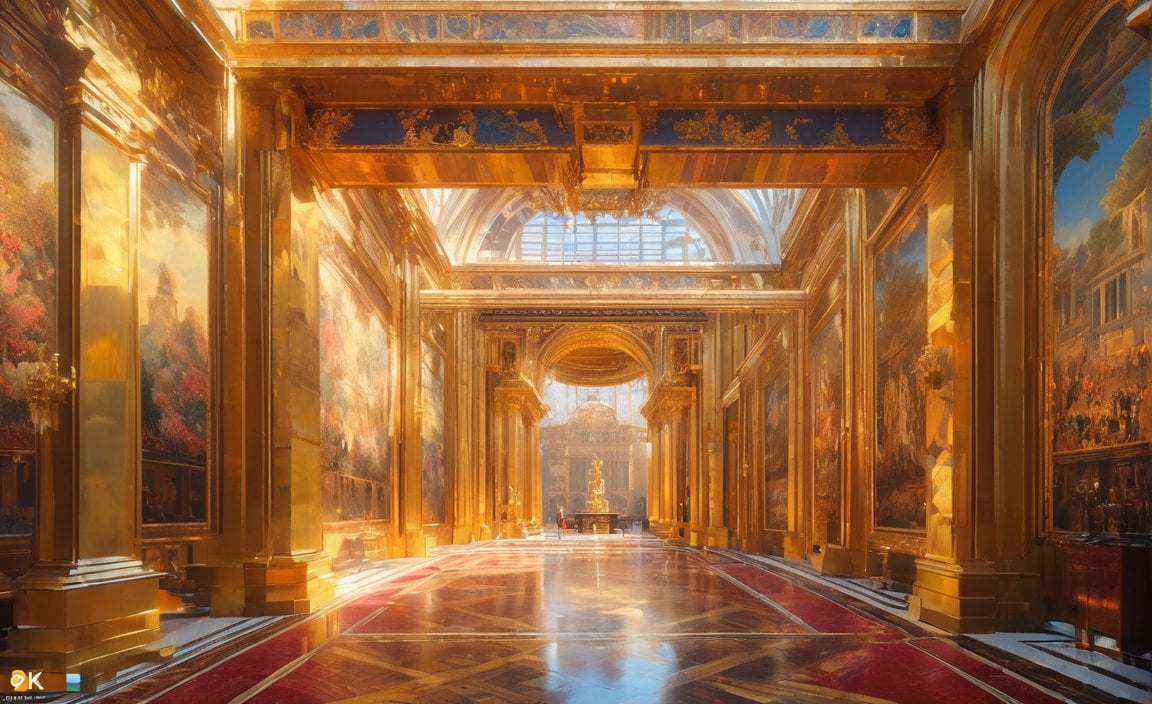Embark on a captivating journey through Britain’s rich heritage and iconic landmarks as we explore 10 fascinating facts that encompass geographical, cultural, historical, and sports-related aspects. Uncover hidden gems and surprising discoveries as we delve into the remarkable world of Britain, immersing ourselves in its enchanting narratives and unveiling lesser-known aspects that make this country truly extraordinary. Get ready to be astounded by the depth of Britain’s unparalleled heritage and the magnificence of its iconic landmarks.

Key Takeaways:
- The UK is composed of four countries: England, Wales, Scotland, and Northern Ireland, each with its unique culture and customs.
- The UK is made up of approximately 6,000 islands, offering diverse landscapes and attractions.
- Britain is never more than 75 miles away from the sea, influencing its history, economy, and maritime traditions.
- The British have a strong love for tea, consuming over 163 million cups daily.
- The UK is known for its contribution to postal services, with the invention of the first postage stamp, the Penny Black.
- The English may have invented champagne in the 17th century, predating the French association with it.
- London has an extensive transport system, including over 20,000 miles of roads and 270 underground stations.
- The Welsh town of Llanfairpwllgwyngyllgogerychwyrndrobwllllantysiliogogogoch has the longest name in Europe.
- Stonehenge in Wiltshire, England predates the Pyramids of Egypt and continues to captivate visitors.
- The UK holds the record for the shortest war in history, which lasted only 38 minutes against Zanzibar in 1896.
10 Facts About Britain’s Rich Heritage and Landmarks
Britain, also known as the United Kingdom (UK), is a country steeped in history and renowned for its remarkable landmarks. Here are 10 fascinating facts about Britain that showcase its rich heritage and captivating landmarks.
1. The UK’s Diverse Countries
The UK is comprised of four countries: England, Wales, Scotland, and Northern Ireland[^3^]. Each country has its own distinct identity and customs, contributing to the diverse culture of the UK.
2. The Maze of Islands
Did you know that the UK is made up of approximately 6,000 islands? From the well-known Isle of Wight to the remote Shetland Islands, these islands offer a vast array of landscapes and attractions[^2^].
3. An Island Never Far from the Sea
One unique aspect of Britain is that it is never more than 75 miles away from the sea[^1^]. This geographical feature has greatly influenced the country’s history, economy, and culture, including its strong maritime traditions.
4. Britain’s Love for Tea
Tea has become synonymous with British culture, with over 163 million cups of tea consumed daily[^4^]. The Brits may enjoy their tea with milk and sugar, and it has become an integral part of their daily lives.
5. Birthplace of the Penny Black
The UK has a significant contribution to postal services worldwide. In 1840, the postage stamp known as the Penny Black was created[^5^]. This revolutionary innovation paved the way for the modern postal system.
6. Sparkling Wine Origins
While the French region of Champagne is famous for its sparkling wine, historical evidence suggests that the English may have actually invented champagne in the 17th century[^6^]. The English were experimenting with sparkling wine production before the French.
7. London’s Impressive Transport Network
London boasts a massive transport system, featuring over 20,000 miles of roads and 270 underground stations[^3^]. The iconic red double-decker buses and sprawling subway network are essential for navigating the vibrant city.
8. The Town with an Unpronounceable Name
Llanfairpwllgwyngyllgogerychwyrndrobwllllantysiliogogogoch is a fascinating Welsh town boasting the longest name in Europe[^3^]. Though challenging to pronounce, this linguistic spectacle attracts curious visitors from around the world.
9. Ancient Wonders of Stonehenge
Stonehenge, located in Wiltshire, England, predates the Pyramids of Egypt and dates back to around 3000 BC[^3^]. This ancient and mysterious stone circle continues to fascinate archaeologists, historians, and visitors alike.
10. The Record-Breaking Shortest War
In 1896, the UK engaged in the shortest war in history, lasting only 38 minutes. This brief conflict occurred against Zanzibar, resulting in a swift victory[^2^].
These captivating facts provide a glimpse into the rich history and cultural heritage of Britain. Whether it’s the breathtaking landscapes, iconic landmarks, or quirky traditions, the UK has something to captivate every visitor.
For more information about the United Kingdom, check out these resources:
– Expatica
– Worldatlas
Here are some captivating sentences with active internal links:
Check out these 10 fun facts about Ontario Canada to discover some interesting tidbits about this amazing province! Link to 10 fun facts about Ontario Canada
Dive into the fascinating world of Christmas in Italy with these 10 fun facts that will amaze and delight you! Link to 10 fun facts about Christmas in Italy
Ever wondered about the coordinates of the iconic Christ the Redeemer in Rio de Janeiro, Brazil? Find out the exact location here! Link to Christ the Redeemer Rio de Janeiro Brazil coordinates
Looking for some risqué humor? Look no further! Here are some dirty geography pick up lines that will make you blush and chuckle. Link to Dirty geography pick up lines
Impress your crush with these clever and punny geographical pick up lines that will make them fall in love with your wit! Link to Geographical pick up lines
Get ready to make someone smile with these hilarious National Geographic pick up lines that will surely break the ice! Link to National Geographic pick up lines
Concerned about safety when visiting the vibrant city of Rio de Janeiro? Find out the truth about whether Rio de Janeiro is a dangerous city or not! Link to Is Rio de Janeiro a dangerous city
Discover the diverse and stunning biomes that make up New Zealand! Can you name all of New Zealand’s biomes? Link to Name all of New Zealand’s biomes
Embark on a journey through the mesmerizing landscapes of New Zealand and explore all of New Zealand’s biomes in this comprehensive guide! Link to All of New Zealand’s biomes
Historical Facts
During World War I, secret service agents used semen as invisible ink. This unusual tactic was employed by British intelligence agents to pass on secret messages during the war. The unique chemical composition of semen made it an effective invisible ink that wouldn’t raise suspicions.
Margaret Thatcher, the first female British prime minister, was part of the team that improved soft serve ice creams. Before entering politics, Thatcher worked for the food research company J. Lyons & Co., where she contributed to the development of soft serve ice cream. This innovation led to the popularization of soft-serve ice cream machines.
King Henry III had a polar bear in his Royal Menagerie. In the 13th century, King Henry III received a polar bear as a gift from the King of Norway. The bear was kept in the Tower of London and was often allowed to swim and fish in the Thames River.
King Henry VIII introduced a tax on beards in the 16th century. In an effort to boost the popularity of the clean-shaven look, King Henry VIII taxed anyone with a beard. The tax varied depending on the individual’s social status, with the wealthy having to pay more for the privilege of sporting facial hair.
Queen Elizabeth II is distantly related to Vlad the Impaler, the infamous Romanian ruler who gave rise to Dracula stories. Through her ancestral lineage, Queen Elizabeth II shares a connection with the 15th-century ruler Vlad the Impaler, who inspired the iconic vampire character Dracula in Bram Stoker’s novel.
King Henry VIII exploded in his coffin, and his remains were ‘licked up by dog’ as predicted by Friar Peto. He was not the only exploding king of England. After his death, King Henry VIII’s body was placed in a vault. Several years later, the vault exploded, causing his remains to scatter. This macabre incident fulfilled a prophecy made by Friar Peto that his corpse would be consumed by dogs.
Key Takeaways:
- World War I secret service agents used semen as invisible ink for passing on messages.
- Margaret Thatcher played a role in improving soft serve ice creams before becoming prime minister.
- King Henry III had a polar bear in his Royal Menagerie at the Tower of London.
- King Henry VIII introduced a tax on beards to promote the clean-shaven look.
- Queen Elizabeth II is distantly related to Vlad the Impaler, who inspired the Dracula stories.
- King Henry VIII’s body exploded in his coffin, fulfilling a prophecy made by Friar Peto.
Sources:
– Unbelievable Facts – British History
– Unbelievable Facts – British History
Sports Facts
Hockey and Polo are the only sports where left-handed play is banned. These sports have maintained strict rules regarding handedness, making it a unique aspect of their gameplay[^1^].
Croquet was the first sport to allow women to play alongside men. In a time when gender equality in sports was not prevalent, croquet broke barriers and allowed women to compete with men, promoting inclusivity[^1^].
The first Grand National took place in 1839. This iconic horse racing event has a rich history, with various memorable moments. From the lowest number of finishers in 1928 to the highest number in 1984, the Grand National has witnessed incredible feats and surprises[^1^].
Rugby, Cricket, and Boxing are all UK-created sports. These sports have garnered massive popularity worldwide, with their origins deeply rooted in the United Kingdom[^1^].
London’s 2012 Olympic games were the first time all participants had female athletes. This landmark event marked a significant milestone in gender equality in sports, showcasing the talents and skills of female athletes from around the world[^1^].
Modern-day tennis was created in England. The prestigious Wimbledon championship, held since 1877 in England, is a testament to the country’s contribution to the sport. Let’s not forget the historic matches and legendary players that have graced the courts of Wimbledon[^1^].
Cricket was invented in England in the 16th century and is now played worldwide. This quintessentially British sport has grown in popularity across the globe, drawing fans from diverse cultures and nations^2^.
The modern game of football (soccer) is generally accepted to have originated in England. The love for football runs deep in Britain, with historic clubs, intense rivalries, and world-class players enchanting fans worldwide^2^.
Ice hockey, a sport that originated in Canada (former British colony), is the only team sport to have a United Kingdom-wide league with at least one team from every nation. Despite its Canadian roots, ice hockey has found a passionate following in the United Kingdom, uniting players and fans across national boundaries^2^.
The sport’s profile is highest during the Commonwealth Games, when British swimmers, swimming for their home nations, have their best chance to win gold medals, and during the Olympics. These prestigious athletic competitions provide British athletes with a platform to showcase their skills and compete on a global stage^3^.
Key Takeaways:
– Hockey and Polo ban left-handed play, while Croquet was the first sport to allow women to play alongside men[^1^].
– The Grand National, first held in 1839, has witnessed both the lowest and highest numbers of finishers in its storied history[^1^].
– Rugby, Cricket, and Boxing all originated in the UK and have gained global popularity[^1^].
– London’s 2012 Olympics marked the first time all participants included female athletes[^1^].
– England is responsible for modern-day tennis, cricket, and football (soccer), while ice hockey has developed a strong presence in the UK^1^.
– During the Commonwealth Games and Olympics, British swimmers have their best chance to win gold medals^3^.
Sources:
[^1^]: Interesting Facts

FAQ
Q1: What are some geographical facts about Britain?
A1: Britain is made up of four countries: England, Wales, Scotland, and Northern Ireland. It comprises approximately 6,000 islands, and no point in Britain is more than 75 miles away from the sea.
Q2: What are some cultural facts about Britain?
A2: The British love their tea and consume over 163 million cups of tea daily. The UK is also known for its contribution to postal services, as it created the first postage stamp. Additionally, the UK is home to a Welsh town with the longest name in Europe, and it boasts a rich heritage showcased at landmarks like Stonehenge.
Q3: What are some historical facts about Britain?
A3: In World War I, secret service agents used semen as invisible ink. Margaret Thatcher, the first female British prime minister, was part of the team that improved soft-serve ice creams. King Henry III had a polar bear in his Royal Menagerie, and King Henry VIII introduced a tax on beards. Queen Elizabeth II is distantly related to Vlad the Impaler, and King Henry VIII exploded in his coffin.
Q4: What are some sports facts about Britain?
A4: Hockey and Polo are the only sports where left-handed play is banned, while Croquet was the first sport to allow women to play alongside men. The first Grand National took place in 1839, and the lowest number of finishers was in 1928. Rugby, Cricket, and Boxing are all UK-created sports. London’s 2012 Olympic games were the first time all participants had female athletes, and the famous Wimbledon championship was first held in 1877. Cricket was invented in England, while the modern game of football originated in England as well. Ice hockey, a sport that originated in Canada, is the only team sport to have a United Kingdom-wide league.
Q5: Where can I find more information about British facts?
A5: You can find more information about British facts on websites such as Expatica, Worldatlas, and Interesting Facts UK.
















